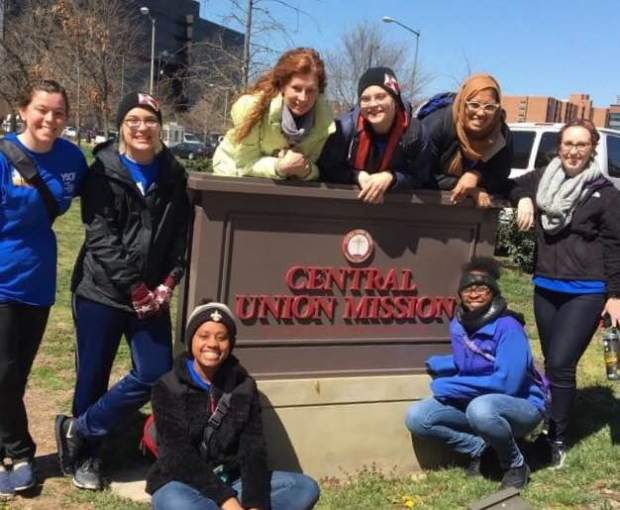As the semester is coming to it’s close, I have realized that this class and trip has impacted my life a lot more than I expected. As a senior getting ready to graduate, I felt like I had my fair share of life changing collegiate experiences and that there was not a lot of change left to make in my life at this point. During the class time before the trip, I felt pretty set in what my values were and my views of the homeless and hungry populations were. What I mean by that is that I already felt compassion and understanding towards them so I did not think that that was going to change. It wasn’t until later that I realized how crucial the lessons and activities were to understanding purpose and meaning in service. Through the readings and class discussions, I was able to learn that service learning is a lot more intentional than just volunteering. I learned that you need to take the focus off of yourself when you go to volunteer, but not necessarily take yourself completely out of the equation. Service learning is not about how you feel after volunteering, it is about what you have learned about the society, the community you served, and about what your world view says about you.
It is interested looking back because before the trip, I took what I learned and thought “well of course that is what service learning is about” and that this was such an obvious thing to know. However, while I was in D.C. serving, I realized how learning these things allows you to be hyper aware of intent. While doing service in D.C., I was more intentional about being compassionate and understanding toward those that I served, especially when it came to those quick judgements you make when you first see someone. I was also more intentional about learning about the people we were serving as well as the populations. I wanted to learn about the individuals that we were serving as well as the communities as a whole so that I could understand the unique situations and see them as individuals but also be able to see what impacts the community as a whole to understand the source of the problem.
One thing that I distinctly remember over the trip was when the director of HUD, Marvin Turner, said that the homeless population in D.C. was smart. I was reminded of this quote later in the trip when other volunteers described the people they were serving as adorable and cute. It was then that I became aware of how us as volunteers might unintentionally belittle those that we serve in seeming harmless ways. Then I became intentional about my own ego and how my privilege is not necessarily a constant or guarantee just like for those that are homeless and/or hungry.
Another distinct memory was that of Day 2 during the trip when we went to Drew Elementary School and after we had tutored the student, we did a reflection and talked about how the community had gotten so impoverished. What the people from D.C. had talked about was gentrification, which I only vaguely knew about. After discussing it more, I realized that Wichita is going through the same things. Although it seems like no one really has a solution for gentrification, the discussion or reflection did allow me to see Wichita differently and more critically. I am glad that I was able to go on this trip because now I feel like I am more (not fully but more) prepared for whatever is to become of Wichita and I feel like I am that much closer to helping it with it’s future.







